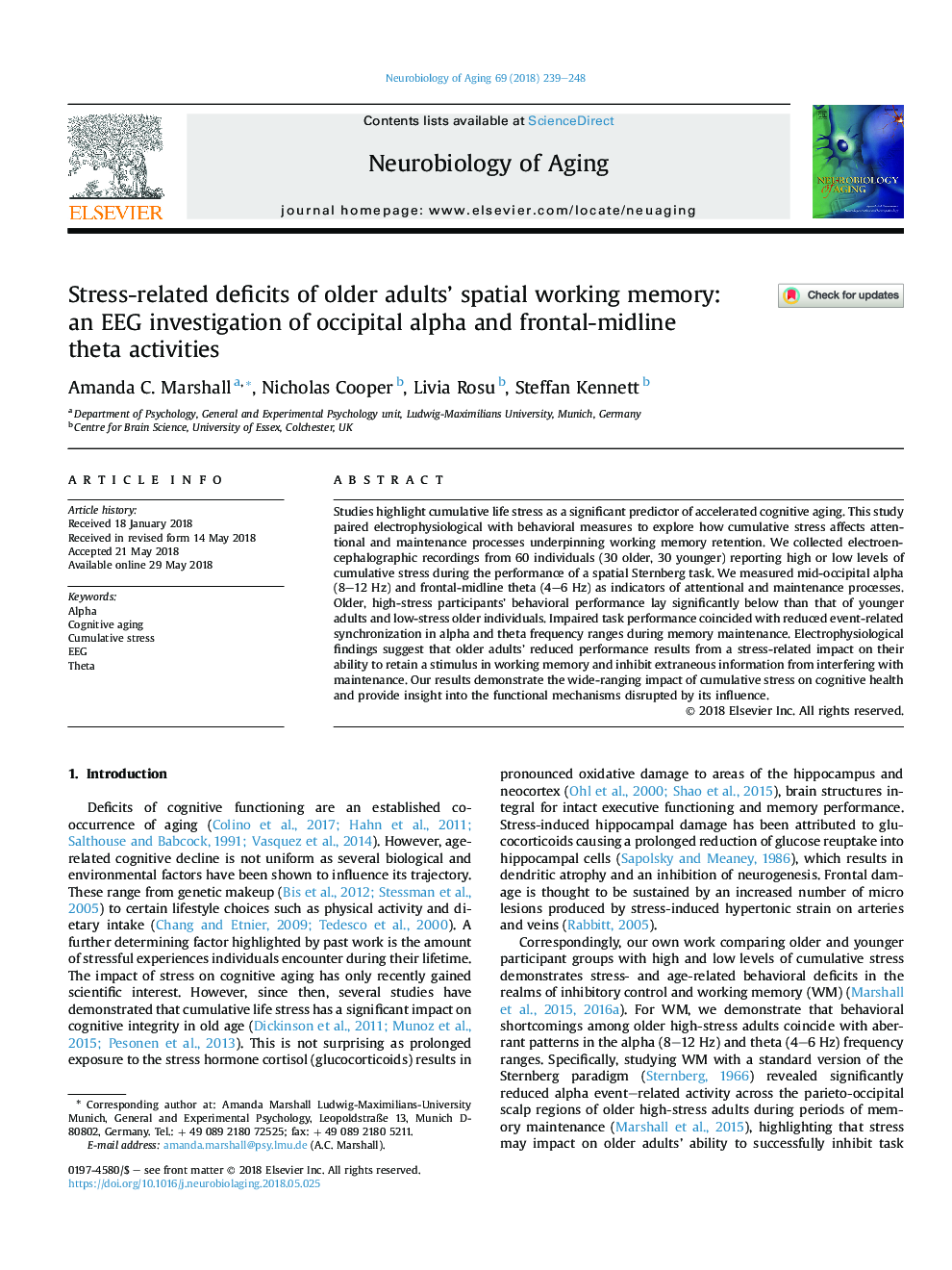| Article ID | Journal | Published Year | Pages | File Type |
|---|---|---|---|---|
| 6802868 | Neurobiology of Aging | 2018 | 10 Pages |
Abstract
Studies highlight cumulative life stress as a significant predictor of accelerated cognitive aging. This study paired electrophysiological with behavioral measures to explore how cumulative stress affects attentional and maintenance processes underpinning working memory retention. We collected electroencephalographic recordings from 60 individuals (30 older, 30 younger) reporting high or low levels of cumulative stress during the performance of a spatial Sternberg task. We measured mid-occipital alpha (8-12Â Hz) and frontal-midline theta (4-6Â Hz) as indicators of attentional and maintenance processes. Older, high-stress participants' behavioral performance lay significantly below than that of younger adults and low-stress older individuals. Impaired task performance coincided with reduced event-related synchronization in alpha and theta frequency ranges during memory maintenance. Electrophysiological findings suggest that older adults' reduced performance results from a stress-related impact on their ability to retain a stimulus in working memory and inhibit extraneous information from interfering with maintenance. Our results demonstrate the wide-ranging impact of cumulative stress on cognitive health and provide insight into the functional mechanisms disrupted by its influence.
Related Topics
Life Sciences
Biochemistry, Genetics and Molecular Biology
Ageing
Authors
Amanda C. Marshall, Nicholas Cooper, Livia Rosu, Steffan Kennett,
